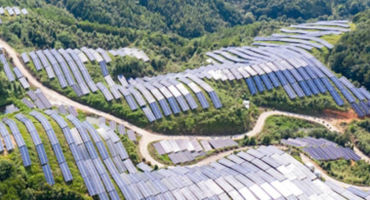Industry leadership on Net Zero by 2050
In accordance with our commitment as founding signatories to the Net Zero Asset Managers (NZAM) initiative, we continue to build a foundation for our investment teams and clients to establish net-zero objectives and measure progress, with an emphasis on:
- Discussing net-zero implementation options and measurement approaches with clients
- Engaging with companies to promote science-based targets as part of credible climate plans
- Incorporating additional carbon-related data into proprietary investment research tools to foster increased transition-risk awareness, measurement, and accountability
- Defining measurable net-zero implementation plans for 70 investment strategies across equities and corporate fixed income
- Actively serving on NZAM’s advisory board and participating in multiple implementation-oriented working groups
As a result of these and other efforts, as of 31 March 2022 our commitment now includes US$436 billion in client assets aligned with achieving net-zero emissions by 2050 or sooner, more than 32% of our assets under management. Because we see our net-zero commitment and clients’ investment objectives as inextricably linked, we assess clients’ investment portfolios and investment strategies one by one.
Enhancing our integrated research on climate transition risks
In January 2022, we announced the formation of a climate change research collaboration with the Joint Program on the Science and Policy of Global Change at the Massachusetts Institute of Technology. This alliance will bolster our current research on the transition to a low-carbon economy, enhance our understanding of the expected financial impacts of various transition pathways on industries and economies, and deepen our decarbonization engagement practices.
The MIT Joint Program’s integrated team of natural and social scientists aims to provide our investment teams with climate projections under various environmental, economic, and policy scenarios. The objective of this research is to outline decarbonization pathways for corporate operations, supply chains, and products, while also assessing their potential economic impacts. This has included two-way dialogue with our industry experts on current bottlenecks and potential breakthroughs for select industries, including energy and light-duty transport. Our investment teams plan to integrate these transition-risk findings into their ongoing fundamental research, in conjunction with physical-risk findings from Woodwell Climate Research Center.
As Chris Goolgasian, director of Climate Research, noted, “Our collaboration with the MIT Joint Program will focus on cutting-edge transition-risk research outlining the economic risks and opportunities associated with climate change. The pace of change and innovation in this field demands that we collaborate with and learn from leading climate-science experts to further inform investment decisions.”









